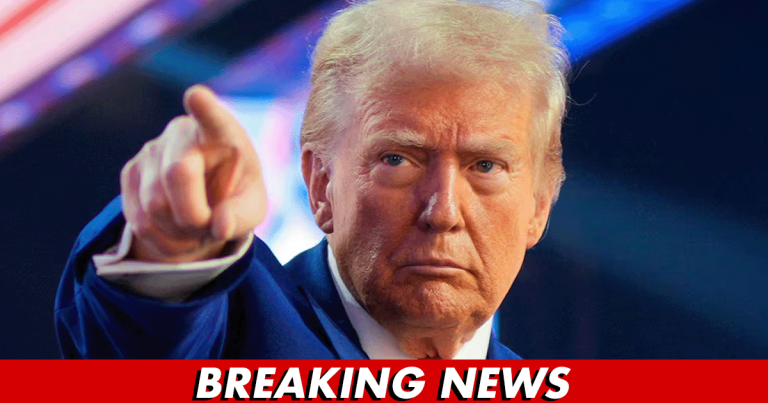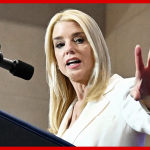
America is back in the business of making things—if President Trump has anything to say about it. Into his second term, Trump is relaunching his signature America First agenda with renewed focus. He’s done manufacturing. He’s tackled energy. Now, he’s looking for his next rescue mission—and you won’t need a hard hat to find it.
So what’s the newest “Made in America” cause on Trump’s to-do list? Believe it or not—Hollywood.
That’s right. The very industry that flooded social media with anti-Trump hashtags and handed out awards for thinly veiled jabs at his voters is now lined up squarely in Trump’s economic crosshairs. Why? Because, as it turns out, behind the red carpets and “Resistance” speeches lies a massive jobs ecosystem quietly crumbling under foreign outsourcing—and Trump says it’s time to bring those jobs home.
Hollywood, meet your new distributor: The Commerce Department
In a fiery Truth Social post, Trump took aim at the movie business, describing it as a gutted American institution being pulled beneath the waves by foreign governments offering juicy subsidies. The former reality TV icon-turned-president is now flipping the script on the film industry by proposing a 100% tariff on foreign-made films.
He didn’t mince words:
From Fox News:
“Hollywood, and many other areas within the U.S.A., are being devastated… It is, in addition to everything else, messaging and propaganda! … I authorized the Department of Commerce and the United States Trade Representative to immediately begin the process of instituting a 100% Tariff on any and all Movies coming into our Country that are produced in Foreign Lands.”
Trump declared the situation a “national security threat” in disguise—foreign governments aren’t just stealing American jobs, he argued, they’re planting their ideology right into American households via the big screen. In true Trump fashion, he signed off his call to action with a punchline: “WE WANT MOVIES MADE IN AMERICA, AGAIN!”
Why defend Hollywood? Because not everyone in Hollywood is Hollywood
Here’s the twist: Trump’s not going to the mat for Hollywood to save headlines or high-fives from the Golden Globes. He’s doing it because the movie business employs more than just limousine liberals. It employs electricians, carpenters, set designers, truck drivers, costume techs, camera grips, and countless others whose livelihoods never make it into Vanity Fair spreads.
When studios pack up and ship productions overseas to score a tax break in Canada or Hungary, it’s these Americans—the blue-collar backbone of the entertainment industry—who pay the price. Trump sees the move as no different from losing auto jobs to Mexico or steel plants to China. Protecting American labor extends far beyond the factory floor.
So yes, he may be throwing a lifeline to California—but make no mistake: this isn’t about Tinseltown’s rich elite. It’s about taking care of the men and women behind the scenes who, too often, get scripted out of the national conversation.
Reel economics: Can tariffs roll credits on foreign production?
Trump’s tariff playbook is familiar: recalibrate the market so domestic production is once again the most profitable option. It’s the same method he used to strong-arm foreign steel, aluminum, and even tech components back into American factories. Now, he’s bringing that model into American storytelling.
Foreign countries like Canada, Australia, and parts of Europe have lured American studios with sweetheart deals—offering up to 30% in production grants, tax credits, and soft-cost shelters. Big studios take the bait, and American cast and crew watch the jobs vanish.
By slapping a 100% import tariff on these foreign-made films, Trump’s betting those same studios will crunch the numbers and decide it’s economically wiser to shoot on U.S. soil—especially in right-to-work states whose governments are hungry to roll out their own incentives.
Can it work? If nothing else, it forces Hollywood to confront its own contradictions: How can you preach about inequality while willingly sending working-class jobs abroad?
Culture, jobs, and the soundstage of patriotism
There’s more at stake than lights, cameras, and closing credits. Trump’s move signals a deeper battle over who controls America’s cultural identity—and where that culture gets created.
For decades, conservatives have lamented the left’s domination of film and television. What used to be family-friendly storytelling has been replaced, in many cases, with overt ideological programming that mocks traditional values, undercuts masculinity, and diminishes patriotism.
This isn’t about censorship. It’s about rebalancing the scales. Trump’s message is simple: Let Americans make American stories. Bring the business—and the narrative—home.
So yes, the establishment in Hollywood may roll their eyes. But the stagehands won’t. The small-town caterers, the union gaffers, the young apprentices learning sound design—these are the people Trump’s fighting for. Because a job saved in the entertainment industry is still a job saved in America.
Key Takeaways:
- President Trump proposes a 100% tariff on foreign-made films to restore American production jobs.
- The plan seeks to protect everyday workers in the film industry—not the Hollywood elite.
- Trump frames the move as a cultural and national security initiative to resist foreign influence.
- This policy is the latest chapter in his larger “America First” agenda to bring jobs home.
Sources: Fox News


